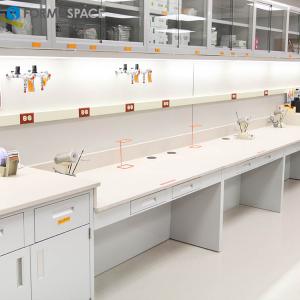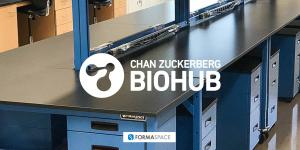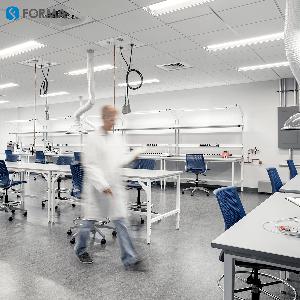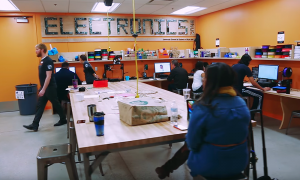How Science Can Help Prevent Climate Change
Given the urgent demands for mitigating climate change, what’s the right course of action for climate research laboratories?
AUSTIN, TX, USA, September 23, 2019 /EINPresswire.com/ -- Given the urgent demands for mitigating climate change, what’s the right course of action for climate research laboratories? Should we undertake major geoengineering projects to change the weather? Could we, for example, refreeze the Polar Regions, as researchers at the Cambridge Center for Climate Study suggest?1. Food: Research Laboratories Taking A Lead Role In Sustainable Food Production
Why focus on food?
The answer is straightforward: our growing demand for food, especially those resource-intensive foodstuffs at the top of the food chain, e.g. meat and fish, may not be sustainable.
As rising incomes across the globe have encouraged once impoverished populations to adopt ‘western-style’ diets that are rich in animal protein derived from livestock, such as cows and pigs.
These dietary changes may spell trouble for the planet. Industrial-scale meat production places disproportionate pressure on forest land and water resources, while cattle, in particular, generate methane greenhouse gases at rates that may not be sustainable.
Vanderbilt University Professor Amanda Little, writing in her new book The Fate of Food, warns that the challenges of drought, flooding, and shifting seasons could lead to the return of widespread, full-blown famines if we don’t undertake changes now.
Another solution may come from laboratory research by food scientists, who are creating environmentally-friendly food alternatives, such as those from Beyond Meat, whose lab produced “meat” products are now available in the US at Burger King and will soon be coming to China as well.
2. Forests: Research Shows That Trees And Other Carbon Hungry Plants Help Slow The Effects Of Climate Change
Climate researchers maintain that proper land use is one of the most critical factors in mitigating climate change.
But why are forests so critical?
Scientists writing in the 2019 United Nations IPPC Special Report on Climate Change and Land (Use) maintain that trees are one of the most productive, natural ways to absorb carbon and emissions and help reduce the severity of climate change.
Yet, as recent satellite imagery of the Amazon rainforest shows, many of these critical forest habitats are under attack, as, for example, Brazilian farmers seek to burn down Amazon rainforest lands for cattle production, or growing crops such as soybeans.
That’s why planting trees is so important — as well as protecting the ones we have.
Engineers working in the labs of BioCarbon Engineering have developed a drone-based system capable of planting new tree seedlings from the air. Their pilot project is to help replace mangrove forests that have been lost in Myanmar – forests that once captured 24 million tons of CO2 emissions each year.
Other ideas in development in the lab include:
Researchers are investigating if ‘fertilizing’ the ocean’s surface-based plant life with nutrients, such as iron, could help encourage these floating ‘forests’ to increase their carbon capture capability.
Lab researchers are developing new strains of algae and bacteria that ‘eat’ carbon dioxide emissions and convert them into useful by-products.
Do you have an idea to address climate change? Y Combinator, the famous Silicon Valley startup, is soliciting new ideas from inventors.
3. Fuel: Developing New Energy Sources And Conservation Measures To Reduce Greenhouse Gas-Emitting Fossil Fuels
Fossil fuels helped power the industrial revolution that created our modern world.
But can we develop and implement new fuel technologies in time, before changes to our environment become irreversible?
Researchers around the world are investigating new ways to create alternative energy solutions, conserve fuel, and extract excess carbon from the atmosphere – in what some estimate will become a trillion-dollar industry.
Here are some of the latest innovations, straight from the laboratory:
Agrivoltaics (also known as solar sharing) is a promising new approach that solves two problems at once. Researchers at the University of Arizona are investigating how to integrate vegetable farms into solar sites, which would double the land-use efficiency. Solar panels provide shade for crops, while the plants’ natural respiration helps cool the solar panels, allowing them to operate more efficiently.
Reports from the International Energy Agency (IEA) conclude that buildings and the building industry are responsible for 36% of global energy consumption and nearly 40% of C02 emissions. In response, an increasing number of newly constructed buildings are designed with climate change in mind, including new “Net Positive” structures which produce more energy than they use. Norway, and in particular the city of Gothenburg in Sweden, are leading the world in building sustainability research. The new Naturalis Biodiversity Building is a prime example.
Air conditioners consume a disproportionate amount of energy, and their use is rising around the world (as incomes and temperatures rise). Yet thermodynamic engineers point out that modern air conditioners are relatively inefficient (at 14%) compared to other electric devices, such as LED lights and solar panels (70% and 40%, respectively). One company, Phononic, has created a new air conditioning technology that not only eliminates the need for coils and evaporators – indeed it eliminates all moving parts – while increasing the cooling efficiency by 40% compared to conventional AC systems.
Albert Einstein said, “Imagination is more important than knowledge.” Our client, Arizona Science Center, was inspired by this and has built a makerspace lab to facilitate the expansion of ingenuity where their visitors design, make, create, and connect.
Read more ... https://formaspace.com/articles/wet-lab/science-helps-prevent-climate-change/?utm_source=einpresswire&utm_medium=content&utm_campaign=article-091719
Mehmet Atesoglu
Formaspace
22792792
email us here
The Future of Farming




